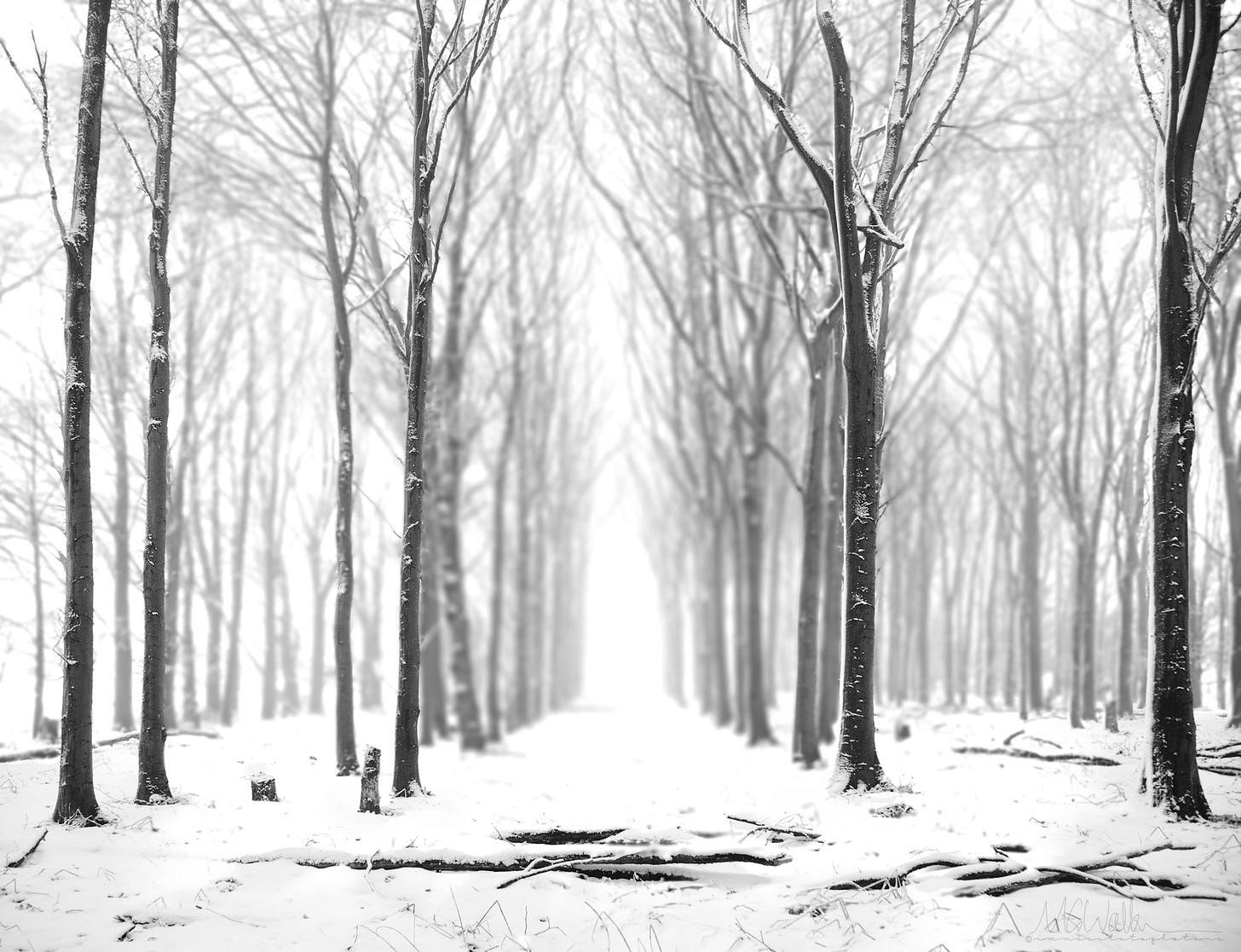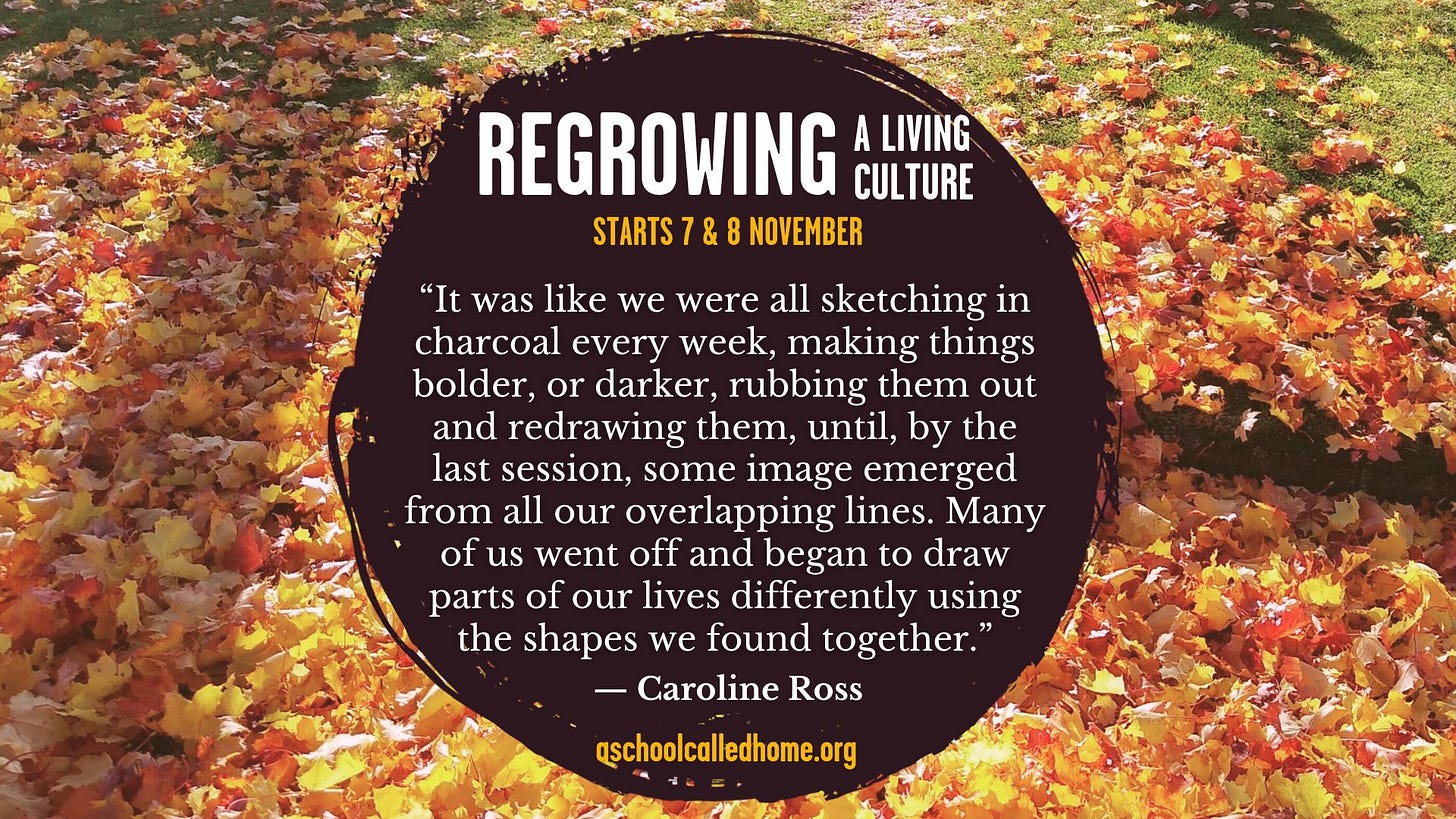Making Bad Ruins (or, How Not to Do It)
How We Make Good Ruins – Part 1
All year, I’ve had Federico Campagna’s words about ‘making good ruins’ resonating through my work – and in recent weeks, following the roundtable conversation with Nate Hagens, Chris Smaje and Pella Thiel, something has been coming into focus. So today I’m introducing a new series on this Substack. How We Make Good Ruins is about putting the things I write and speak about into practice. I want to share stories of the people and projects that embody what I’m seeing – and to map out what might just be some strategic thinking for how we create the conditions of possibility for a lot more of this to happen in the coming years.
If you’d like to join me in exploring these things, then check out the five-week Zoom series I’m teaching, Regrowing a Living Culture, which starts next week. And if you’d like to support my work, then becoming a paid subscriber to this Substack is an excellent way to do so.

There’s a story that’s been haunting me for months. It’s a story
told in his Solstice Letter about the dairy farm on the hills behind his house in rural Luxembourg. The farmer got a grant from the government to plant trees and Rhyd describes his initial excitement at the prospect of the restoration of this overexploited grazing land. But this turned to horror as he realised that no provision had been made for the watering of the newly planted saplings. As the summer wore on, he had to watch as all but a handful of them died.I told this story to a group of staff at the European Commission and at the end I said, ‘I’m willing to bet that the planting of those trees was fed back up into a spreadsheet in the department that funded the project, while the dying of the trees was not.’
The political scientist James C. Scott wrote a book called Seeing Like a State about what happens when the world is seen through spreadsheets. The example with which he opens the book is the invention of ‘scientific forestry’ in late eighteenth-century Prussia. To the mindset of the state, the market and the intellectuals whose work contributed to the expansion of both, ‘The forest as a habitat disappears and is replaced by the forest as an economic resource to be managed efficiently and profitably.’ Having come to view existing forests in these terms, they went on to plant new and more efficient forests, where trees of the same age and species stood in rows, easily counted and harvested. In the short run, this was ‘a resounding success’, and since trees live longer than humans, this short run lasted almost a century. In the longer run, this approach to forestry succeeded in adding a new word to the German language: Waldsterben, ‘forest death’, naming the ecological breakdown that proved to be the end result of this brutal simplification of a living forest.
Ursula K. Le Guin once wrote a novel about a people for whom The Word for World is Forest. It strikes me that we could translate the pattern of brutal simplification which Scott locates at the heart of modernity accordingly: ‘The world as a habitat disappears and is replaced by the world as an economic resource to be managed efficiently and profitably.’ This goes a long way to explain how we got to where we find ourselves. (Those familiar with the work of Iain McGilchrist will recognise that this corresponds to his description of what happens when left-brain thinking is allowed to do all the work of knowing and acting on the world.1)
I wrote At Work in the Ruins because I could see a fault line opening up among those of us who are most alert to the depth of the trouble the world is in. On one side of this line are those whose approach to a thing like climate change is framed by the logic of seeing the world through spreadsheets. This side has some huge advantages: they are speaking in terms of the dominant logic of modernity, the logic of those who get to call themselves the ‘grown-ups’. And since the work of climate modelling already relies on this logic, surely it’s obvious that the response would follow the same approach to the world? When they pay any attention to those of us on the other side of the fault line, it is generally to abuse us for our refusal to grow up: we are innumerate romantics, they insist, and if we are listened to then ‘billions will die’.
Since I wrote the book, this fault line has heated up. I don’t want to dwell too much on the affair of George Monbiot’s attempted hit-job on Chris Smaje, ‘The Cruel Fantasies of Well-Fed People’, and the subsequent unravelling of Monbiot’s own use of data in Regenesis. For those just tuning in, I recommend reading Chris’s response, and the article by Rob Dietz, editor of Resilience.org, explaining why they refused to publish Monbiot’s original attack on Chris.
What has been revealed by all of this is that those of us on the other side of the fault line are not the cruel, innumerate romantics Monbiot will no doubt continue making us out to be. Rather, in Chris’s case and that of many of the other thinkers I drew on in my book, what you find is highly numerate people who believe in the importance of treating data with care, rather than waving it around as a rhetorical bludgeon, and who are alert to the limits of what numbers can and can’t tell us about the world and the possibilities for acting within it. Not least, our work is informed by what Scott and others have shown about the consequences of seeing the world through spreadsheets – which brings me back to those dying saplings on the hillside in Luxembourg.
Faced with the failure of that tree-planting project, no doubt there are those who would respond that what is needed is a better-designed spreadsheet, a better plan for how to manage the world from above. Yet when I told the story to the group at the European Commission, their reaction was closer to despair – and I want to say that this is appropriate. There is a kind of despair that is a necessary prelude to a rupture in the way you have been approaching the world, and only on the far side of such a rupture does it become possible to notice that there are other ways the world can be approached.
From where I’m sitting, what’s needed is not a better spreadsheet through which to know and act on the world, but a closer involvement with the living world. It’s true that any hopeful path into the worlds to come will involve planting a lot of trees, but not in the fix-it-and-move-on mode that passed for effectiveness within the problem-solution mindset of modernity. If those trees are going to live and flourish, that requires us to show up, to stick around, to get back involved with the land and all the creatures that we share it with.
My work brings me into contact with a proliferation of people and projects who are putting this into practice. As this series goes on, I want to share some of their stories. For each of these people, I know that there are hundreds more who are longing to find a way into this kind of practice, and many thousands who are experiencing the kind of disorientation and alienation out of which such a longing is born. We have the makings of a movement that is loose enough to have life in it and large enough that it might just make a difference.
But it is also true that these initiatives tend to be running against the tide of the economic logic we have inherited from the industrial era. It takes some trickster moves to find ways of running against this tide, drawing on the deep wells and flows that go unmapped on its spreadsheets.
And one of the things that’s come home to me lately, as a result of the conversations the book has led me into, is that some of this trickster work involves working with existing systems to find ways of releasing resources. After months of talking about ‘making good ruins’, in the language that I learned from Federico Campagna, I’ve caught sight of a new set of possibilities for how we turn this into something that could be called strategy. So that’s the other side of what I plan to write about in this series, to open up what I think I’m seeing and explore where that might lead.
At the heart of it all, there’s an approach to agency that is different to the one that has governed the projects of modernity. It’s an approach that is centred on affecting the conditions of possibility, the things that are likely to happen in a situation, without seeking to control the situation or make it wholly predictable.
There are things that I can see from where I’m sitting and things that will be hidden from view, and that’s as it should be, but I look forward to exploring this together in the months ahead.
As we head into this second year of Writing Home, a word about what is coming over the horizon. How We Make Good Ruins represents one side of the work I’ve found myself called to in the course of 2023. The other side is what I have begun to frame in the Into the Deep essays, an exploration of the encounters that become possible among the ruins of our religious traditions. From what I can see, these will be the two main tracks of my work, here on Substack and elsewhere, for the next while.
I make a living through speaking, writing and helping people think together about questions like these, so I’m always open to invitations to take this work into new contexts. And I’m endlessly grateful for the support of paid subscribers here which gives me the freedom to write about what is calling to me.
I’ll go on interleaving pieces on these themes with more personal letters and news of events, conversations and courses. On which note, stand by for the fifth season of The Great Humbling podcast, starting any day now, and for a recording of last Sunday’s Ivan Illich conversation between David Cayley and Sam Ewell. And finally, as mentioned already, there are still places available for the five-week Regrowing a Living Culture series which gets underway next week.
See the conversation that I recorded with Iain earlier this year.


Thank you so much for telling them that story. I see them every day when I look out my window and it still feels so deeply sad.
Ursula Le Guin said it best in her (much-quoted) phrase- 'Realists of a larger reality'. Tricksterism can be seen as a kind of missing piece in the current moment, I think. In Trickster Makes This World, Lewis Hyde speaks of trickster as a disrespector of boundaries. Like Hermes, who travels between realms to carry messages, part of trickster's job is to poke their finger through walls, like, 'See? it's not even there.'
Another thing about trickster is that they exist outside of the normal reciprocal relationships- of predator / prey, for instance. Hyde sees trickster as a kind of parasite. Trickster's first trick, across many cultures, is to catch a fish: that's true here where I am, where the demigod Māui fished up Te Ika a Māui, the North Island of New Zealand, where I'm writing from (I live at the head end, near the mouth.)
Trickster energy to me is about being cunning, and funny, and unboxable, and adapting to the moment- any moment. There should be no limit to that adaptability.